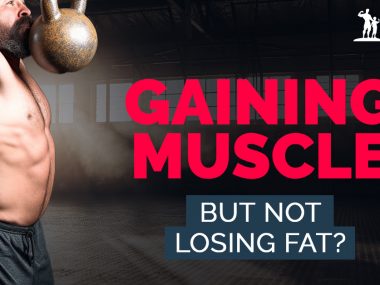The Impact of Food Quality and Proper Recovery in Your Fitness Journey
How does food quality (not quantity) and proper recovery help you lose weight when working out?
In the pursuit of weight loss, many individuals focus predominantly on calorie counting and exercise intensity, often overlooking the critical role that food quality and proper recovery play in achieving sustainable results. While the quantity of calories consumed and burned certainly influences weight management, the quality of those calories and the body's ability to recover are equally significant factors. In this article, we will delve into the interconnected relationship between food quality, recovery, and weight loss, unraveling the science behind their impact on overall well-being.
The Role of Food Quality
- Nutrient Density: The Power of Micronutrients Consuming nutrient-dense foods is paramount for weight loss. Foods rich in vitamins, minerals, and antioxidants not only provide essential nourishment but also support overall health. Nutrient-dense foods include fruits, vegetables, whole grains, lean proteins, and healthy fats. These foods not only assist in weight loss by promoting satiety but also ensure that the body receives the necessary tools for optimal function.
- Balanced Macronutrients: The Key to Sustained Energy The composition of macronutrients (carbohydrates, proteins, and fats) in one's diet plays a crucial role in weight loss. A balanced intake ensures sustained energy levels and helps prevent overconsumption. For instance, protein-rich foods aid in muscle preservation during weight loss, while healthy fats contribute to a feeling of fullness. Striking the right balance ensures that the body efficiently utilizes nutrients for energy, reducing the likelihood of excess calories being stored as fat.
- Glycemic Index and Blood Sugar Regulation The glycemic index (GI) of foods influences blood sugar levels. Foods with a high GI cause rapid spikes and crashes in blood sugar, leading to increased cravings and overeating. Opting for low-GI foods, such as whole grains and legumes, promotes stable blood sugar levels and sustained energy, contributing to better appetite control and weight loss.
The Crucial Role of Proper Recovery
- Muscle Repair and Growth: The Aftermath of Exercise Engaging in regular physical activity is a cornerstone of any weight loss journey. However, the benefits of exercise extend beyond calorie burning. During workouts, muscles undergo stress and micro-tears, requiring adequate recovery for repair and growth. Proper recovery involves adequate rest, hydration, and nutrition to optimize the body's ability to rebuild and strengthen muscles, ultimately boosting metabolism.
- Hormonal Balance: Cortisol and Beyond Chronic stress, often exacerbated by intense workouts, can lead to elevated cortisol levels. Cortisol, known as the stress hormone, is associated with increased abdominal fat storage. Prioritizing recovery, including activities like meditation and sufficient sleep, helps maintain hormonal balance, mitigating the negative impact of cortisol on weight loss efforts.
- Quality Sleep: The Silent Weight Loss Ally The importance of quality sleep in weight loss cannot be overstated. During sleep, the body undergoes essential processes, including hormone regulation and metabolism. Lack of sleep disrupts these processes, leading to imbalances in hunger hormones and increased cravings for high-calorie foods. Aiming for 7-9 hours of quality sleep per night supports weight loss efforts by promoting overall well-being.
Synergistic Approach for Weight Loss Success
- Creating a Holistic Lifestyle: Beyond Diet and Exercise Achieving and maintaining weight loss involves adopting a holistic approach that extends beyond diet and exercise. Integrating stress management techniques, prioritizing sleep, and practicing mindfulness contribute to an environment conducive to weight loss. The symbiotic relationship between these lifestyle factors amplifies their individual benefits, creating a powerful synergy for sustainable weight loss.
- Personalized Approaches: Tailoring Strategies to Individual Needs Recognizing that individuals have unique needs and preferences is crucial in developing effective weight loss strategies. Personalized approaches consider factors such as dietary preferences, cultural influences, and individual responses to different types of exercise. By tailoring interventions to the individual, adherence to lifestyle changes is enhanced, increasing the likelihood of long-term success.
Conclusion
In the intricate tapestry of weight loss, the threads of food quality and proper recovery weave a story of resilience, balance, and sustainable success. Recognizing the impact of nutrient-dense foods, balanced macronutrients, and thoughtful recovery practices empowers individuals to make informed choices on their weight loss journey. By embracing a holistic and personalized approach, one can create a lifestyle that not only sheds pounds but fosters overall well-being, setting the stage for a healthier and more fulfilling life.


